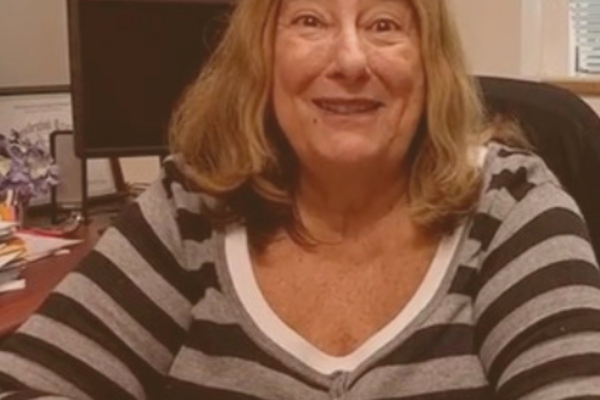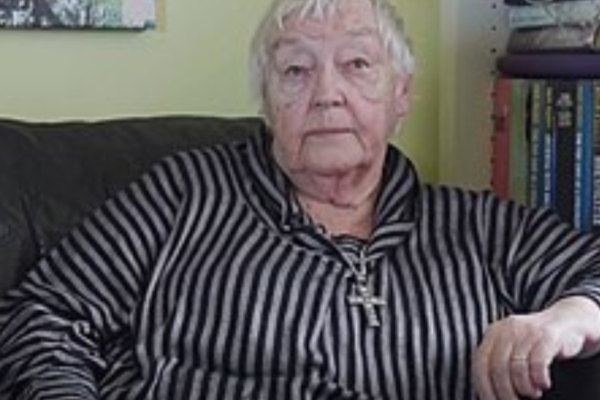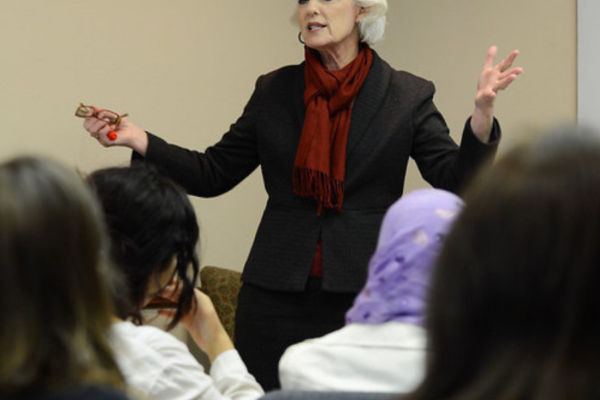Women’s History Month: Pioneers in Domestic Violence
It has been less than 60 years since a research study by three psychiatrists said domestic violence occurs because partners need to balance out their “mental quirks.” They explained abuse this way:
“The periods of violent behavior by the husband served to release him momentarily from his anxiety about his ineffectiveness as a man, while giving his wife apparent masochistic gratification and helping probably to deal with the guilt arising from the intense hostility expressed in her controlling, castrating behavior.” – TIME, 1964
Just reading that is painful and we’re so glad we’ve made strides to move away from this mentality. We bring this up because for Women’s History Month, we wanted to look back at some of the women who have been pioneers in getting society to recognize and work toward ending domestic violence. As this bit of history illustrates, the “history” of progress doesn’t go back very far. And, we know there is still important work to do.
The pioneers of change were fighting for women’s rights in the 1970s – a time lived through by our mothers, aunts, grandmothers and many of us ourselves.
Erin Pizzey and Dr. Lenore Walker
In 1975, Dr. Lenore Walker had just received her doctorate from Rutgers University and was studying child abuse in Denver when she realized how often abused children’s mothers shared stories of their own abuse. Through U.S. Representative Patricia Schroeder (D-CO), herself a trailblazer for women’s rights, Walker met Erin Pizzey, who had opened Europe’s first domestic abuse shelter in England four years earlier.
For Pizzey, domestic violence was an unending cycle of learned behavior that had to be broken. When Walker and Pizzey met, the Chiswick Women’s Aid shelter, “a large Victorian house in West London legally suitable for 36 people,” had 25 women and children to each of its four bedrooms because demand was so great. (NYT, 11/29/1975) Pizzey soon published Scream Quietly or the Neighbors Will Hear, earth-shattering, unedited letters from the victims themselves.
After meeting Pizzey and others in the fight, Walker returned home to formulate her theories on why abuse occurs and its long-term effects. She identified Battered Woman Syndrome, now associated with PTSD, and developed the Battered Woman Syndrome Questionnaire (BWSQ) to clinically assess the psychological effects from abuse.
Walker continues her research today to constantly validate the questionnaire and is an author, international speaker and director of the Domestic Violence Institute Inc., a nonprofit to “educate policymakers and communities around the world about domestic violence and other forms of gender violence.”
Tracey Thurman
In 1985, Tracey Thurman sued the Torrington, Connecticut, police for failing to protect her from her husband’s repeated attacks and threats to kill her and their 22-month-old son. The last attack – 13 stab wounds and a broken neck – left her partially paralyzed after an 8-month hospitalization. The court awarded her $2 million, and the case led to Connecticut’s 1986 Family Violence Prevention and Response Act. Because of the publicity her injuries and this case received, Thurman helped change police departments across the U.S. A 1989 movie based on Thurman’s story, A Cry for Help, brought further awareness to the realities of domestic violence.
Jan Langbein
When Jan Langbein joined the Genesis Women’s Shelter and Support in Dallas as a volunteer, she was working in a seven-room emergency shelter. When she became CEO, she turned it into a full-service response center for residential and non-residential survivors of domestic violence.
Today, Langbein is often called on to provide expert testimony in court cases on the effects of domestic abuse, and she trains prosecutors, investigators and law enforcement across the country. She co-founded the annual International Conference on Crimes Against Women along with the FBI and the Dallas Police Department. She was a President George W. Bush appointee as senior policy advisor to the director of the U.S. Department of Justice Office on Violence Against Women (OVW), serving as chief strategist during implementation of the Violence Against Women Act. She has been recognized with many awards, including the FBI Director’s Community Leadership Award.
Lovern J. Gordon
Lovern J. Gordon thought domestic violence was the norm. Growing up in Trinidad until she was 15, she watched her father demean, slap, punch and finally attack her mother with a machete when she did something not to his liking. Though determined not to repeat her mother’s life, Gordon spent two years in her own abusive relationship until ending it after a five-hour beating.
When she took pageant titles of Mrs. Ethnic New England 2010 and Mrs. Ethnic World International 2011, Gordon chose Awareness Against Domestic Violence as her platform to promote during her reigns. The decision set her on a path of lifelong advocacy.
Since then, Gordon founded the Love Life Now Foundation in Massachusetts and hosts events that have raised thousands of dollars for shelters across the state. She earned a Domestic Violence Advocate Training Certification through Health Imperatives Inc. and conducts educational workshops at high schools and college campuses. She shares her story on radio and TV shows and asks communities to learn how they can be part of the solution.
Rihanna
The media hasn’t let it go, constantly asking about the incident in interviews. Though Rihanna never wanted to be the “poster child” for domestic violence, neither does she shy away from speaking out against it.
Nine years later, when Snapchat posted an ad asking, “Would you rather slap Rihanna or punch Chris Brown?,” she publicly and forcefully said Snapchat had “let down all the women, children and men that have been victims of domestic violence and the ones who haven’t made it out yet.” Though Snapchat said the ad was an error and deleted it, the company’s stock prices dropped 4% as fans and women around the world rallied to Rihanna’s support.
These are just a few of the hundreds of thousands of women who have fought to end domestic violence and are still doing so today. This Women’s History Month, we want to thank all of them – and all of you – for your efforts to wipe out this major health concern.
Photo credits:
Erin Pizzey by newsPeeks, license: CC BY 3.0
Dr. Lenore Walker, drlenorewalker.com
Jan Langbein by TheBushCenter, license: CC BY-NC-ND 2.0
Lovern J. Gordon, lovelifenow.org
Rihanna by Liam Mendes, license: CC Attribution-Share Alike 2.0 Generic









